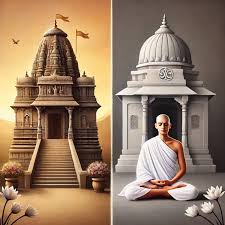Jainism, one of the oldest religions of India, is rooted in the principles of non-violence (ahimsa), truth (satya), and spiritual liberation through self-discipline. At the heart of Jain philosophy lie the 24 Tirthankaras—spiritual teachers who attained liberation and showed others the path to freedom from the cycle of birth and death. Each Tirthankara serves as a role model of renunciation, meditation, and realization. These enlightened beings did not create the religion but revitalized and re-established the dharma in the times they lived. They are revered for having conquered worldly attachments and attained perfect knowledge (kevala jnana).
The 24 Jain Tirthankaras name list holds immense spiritual significance and is often memorized and recited by Jain followers in daily prayers and rituals. The first Tirthankara was Rishabhanatha, believed to have lived millions of years ago, and the last was Mahavira, a contemporary of the Buddha, who lived in the 6th century BCE. The names of all 24 Tirthankaras are: 1) Rishabhanatha, 2) Ajitanatha, 3) Sambhavanatha, 4) Abhinandananatha, 5) Sumatinatha, 6) Padmaprabha, 7) Suparshvanatha, 8) Chandraprabha, 9) Suvidhinatha (Pushpadanta), 10) Shitalanatha, 11) Shreyansanatha, 12) Vasupujya, 13) Vimalanatha, 14) Anantanatha, 15) Dharmanatha, 16) Shantinatha, 17) Kunthunatha, 18) Aranatha, 19) Mallinatha, 20) Munisuvrata, 21) Naminatha, 22) Neminatha, 23) Parshvanatha, and 24) Mahavira. Each of these Tirthankaras has specific symbols, colors, and emblems associated with them that are reflected in Jain art and iconography.
The stories and teachings of the 24 Tirthankaras continue to guide millions of Jain devotees. Their lives are celebrated through festivals such as Mahavir Jayanti, which commemorates the birth of Lord Mahavira. Temples across India and beyond are dedicated to them, featuring intricate carvings and statues depicting the Tirthankaras in meditative postures. Understanding the message of the Tirthankaras goes beyond ritual—it's about adopting a life of compassion, self-control, and inner peace. Through the legacy of the 24 Jain Tirthankaras, followers are reminded of the path to spiritual elevation and the power of living a life grounded in non-violence and truth.





Comments